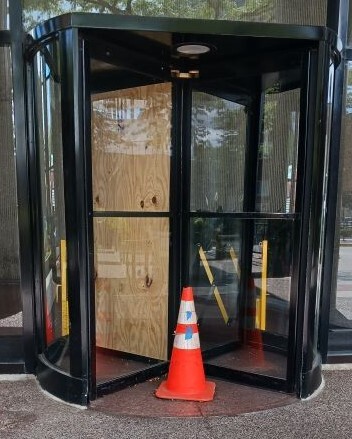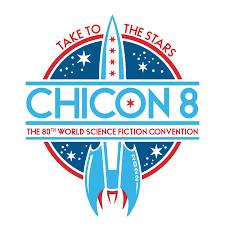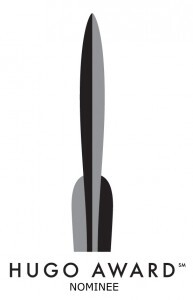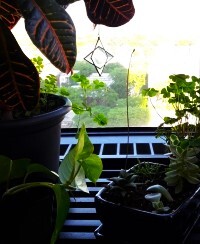Sue Burke's Blog, page 18
September 28, 2022
Goodreads review: “Piranesi” by Susanna Clarke

Piranesi by Susanna Clarke
My rating: 5 of 5 stars
A man is exploring a huge building, which he calls the House, but something seems odd about both him and the House. That’s how the novel opens, and soon, things become clearly wrong. The man, Piranesi, doesn’t — and in a strange way can’t — understand his own situation, which is ghastly. Yet, overall, he’s very happy, good, and generous.
The novel leads the reader on a series of discoveries. What is happening, and why does Piranesi believe such strange and obviously false things? By the end it makes sense, but with a twist. This is the novel’s final sentence: “The Beauty of the House is immeasurable; its Kindness infinite.” We learn that the things Piranesi believed that seemed false may in fact be true.
I might not be making sense because I don’t want to give anything away. This novel won some big awards, and it deserves them. It was a delight to read.
September 21, 2022
The meaning of a broken door

In August, a sudden storm broke one of the revolving front doors of my condominium building. Due to a shortage of replacement parts, we’re still waiting for it to be fixed.
That’s not the whole problem. The door is breaking more often. We live in a high-rise building amid some other high-rises, and the entrance area often becomes a wind tunnel — and in recent years, it’s been getting dangerously windy more often.
Revolving doors are a common element of architecture here in Chicago. They help keep buildings warm in the winter and cool in the summer. Tall buildings have airflow problems, and revolving doors are a space-efficient way to stop drafts. But the doors are a bit fragile, and our building may need to replace it with a different kind of door because climate change is bringing more frequent violent storms to an already windy city.
Compared to other effects of climate change, this is a laughably small problem. People are losing their homes, livelihoods, and lives to fires, floods, heat waves, hurricanes, and droughts. Yet, I think the broken revolving door illustrates the scale of climate change. The consequences are so big that even minor architectural elements are being affected. As another example, Chicago, like other cities, now requires flat roofs to be white to reflect heat: along with more storms, we’re going to face more heat, and cities can become deadly heat islands.
World-altering changes in the climate are creating a cascade of smaller changes. Here’s one of them: our front door keeps breaking — and it’s a sign of the times.
September 14, 2022
Goodreads review: “Fountain Girl” by Patricia S. Bowne

Fountain Girl by Patricia S. Bowne
My rating: 4 of 5 stars
Full disclosure: Pat Bowne and I used to belong to the same critique group, and I’ve been a fan of her writing for a long time.
She usually sets her stories and novels in the fantasy world of the Royal Academy at Osyth, a university that teaches magic. This book takes place before the academy is established, at a different magic university. A girl from a distant, isolated village comes there to learn how to master her magical skills and to find her brother’s lost child. Her particular magic involves water, but when the river runs disastrously dry, she didn’t make it happen. She’s only a first-year student — how could she have the skills to do that! But if not her, then who?
Demons, wizards, mermaids, folk tales, and irascible kings fill this story. Even better, it’s filled with plot twists. Bowne has been writing in this universe long enough to weave a lush brocade of people, places, and motivations. As an academic herself, she knows how difficult college life can be for students and professors. Throw in some angry goblins, and the stakes rise to potentially fatal.
You don’t need to have read previous Osyth novels to understand this one, by the way. As a prequel to the series, it stands on its own.
Patricia S. Bowne fiction: https://raosyth.com/raosythindex.html
September 7, 2022
I began writing professionally 50 years ago this month

I love to write. I always have, and I’ve been lucky enough to get paid to do it.
My first job was a small but steady gig: I covered my high school for the local suburban newspaper. I took the work seriously and did my best, clattering out “Rocket Report” columns (our high school mascot was a rocket) on my manual typewriter. From what I recall, my writing might have been a little wooden and my interview skills needed some polishing, but I met deadlines and turned in usable prose. That’s all it takes to keep an editor happy, I learned.
After I graduated from high school, I studied writing and journalism in college. From there, I moved on to a career of writing and editing small newspapers and magazines as staff or as a freelancer, as well as working in writing-related jobs, such as newsletter editor for small organizations. I began writing fiction in the early 1990s.
A half-century at the keyboard has taught me a few things:
Writing is a long lesson in humility. I’ve made enormous mistakes — so big that I don’t want to mention them. I will no doubt keep making mistakes. I’ve learned that it’s always possible to fail to write what I meant to say, and to write something I had no idea I was actually saying. It’s also possible to make monumentally unfortunate typos.
Writing is a long lesson in discovery and joy. I once heard journalism defined as going to the most interesting places, watching the most interesting events, talking to the most interesting people, and then all you have to do is write about it. I’ve seen and done all sorts of interesting things.
I’ve been kissed by a llama, reported on a serial killer, watched children discover the power of art, talked to basket weavers, bird watchers, historians, and housewives, and found out how governments work and buildings are managed. Although I’ve observed that people lie a lot, they also tell the truth — happily, desperately, kindly, maliciously, and surprisingly. Adverbs might be what secretly makes the world go ‘round because they explain how the world goes ‘round.
I’ve met people of every possible adverb, and people empower every form of writing. These days I not only meet people, I create imaginary people for fiction. I never run out of things to say about them and the worlds where they live, real and imaginary.
Sometimes I’ve had work that did not involve writing, but when I’m writing, it’s not work, it’s the energy of discovery and joy. There’s always more to learn. So far, I’ve been lucky for a full half-century.
August 26, 2022
My Chicon 8 schedule: come say hi!

I’ll be at Chicon 8, the 80th World Science Fiction Convention, held September 1 to 5 at the Hyatt Regency Hotel in Chicago. Almost 5,000 people are expected to attend in person with 1,500 attending virtually. Hundreds of activities are planned. It will be a five-day party, and you can still sign up and come.
Here’s what I’m scheduled to do, eight panels and a table talk (locations subject to change):
The Future of Science Fiction Is International – Crystal Ballroom C – Thursday, September 1, 11:30 a.m. CDT
International SFF is flourishing, with new and classic non-English works being translated in unprecedented numbers, and writers and readers from diverse cultural backgrounds interacting in real time. Why is a more global approach to SFF important to the future of the genre as a whole? Who are the authors, translators, and venues to watch, and what are some of the most fascinating trends and works right now? Andy Dudak, moderator; Hildur Knútsdóttir, Leslie, Sue Burke.
Terraforming and Alien Life – Regency Ballroom D – Thursday, September 1, 4:00 p.m. CDT
If we terraform a planet, what happens to the living things that evolved there? Would an “Earth-like” planet have living things we could live alongside? How might Earth life integrate into an alien ecology? This panel will contemplate the ecological impacts of making another planet more Earth-like. Colin Alexander, moderator; Eva L. Elasigue, Kevin Wabaunsee, Sue Burke.
What Books Get Translated? – Michigan 1 – Thursday, September 1, 7:00 p.m. CDT
The world is filled with amazing SFF that isn’t written in English and never gets an English translation. There’s also a lot of English SFF that never gets translated into other languages. Why do some works get translations, while others don’t? Sue Burke, moderator; Andy Dudak, Hildur Knútsdóttir, Yasser Bahjatt.
Table Talk with Sue Burke – Crystal Foyer – Friday, September 2, 1:00 p.m. CDT
Table Talks are informal hour-long discussions with a “host” and up to seven people — similar to the Kaffeeklatsches and Literary Beers hosted by previous Worldcons. As part of Chicon 8’s commitment to its covid-19 policy, there will be no beverages this time, just talk. Come and find out if your houseplants want to kill you.
1940: The First Chicon – Randolph 1 – Friday, September 2, 7:00 p.m. CDT
The second-ever Worldcon — the 1940 convention in Chicago — established traditions that have echoed through many events that havefollowed: the masquerade, the con suite, filking… Explore the full history of this seminal event, including the backstories of its organization and the historical context that informed it. We will also include a recreation of E.E. “Doc” Smith’s Guest of Honor speech. Alex Mui, moderator; David Ritter, John Hertz, Sue Burke.
Readings from Ludlow Charlington’s Doghouse – Roosevelt 1 – Saturday, September 3, 11:30 a.m. CDT
Fetch these delightful doggie stories from Ludlow Charlington’s Doghouse, a fantasy anthology benefiting Friends of Chicago Animal Care & Control. 19 authors, 34 drabbles, stories, poems, plays, and songs. Even a music video! Full of good bois and grrrrrls. Potential readers include Tina Jens, Steven H Silver, Sue Burke, K. M. Herkes, Joe Janes, and Lauren Masterson.
Translation Is Creative Writing – Grand Hall K – Saturday, September 3, 7:00 p.m. CDT
The job of a translator is not merely to pick the matching words in the second language. Done well, translation conveys the tone and flavor of the original text. A character with an ascerbic wit in Chinese should be just as funny in English, for example. Lyrical descriptions of landscapes should be equally poetic. What makes a translation work, and who does it well? Jean Bürlesk, moderator; Andy Dudak, Sue Burke, Su J Sokol, Yasser Bahjatt.
The State of the Translation Market – Randolph 3 – Sunday, September 4, 4:00 p.m. CDT
Translation rights sound both appealing and intimidating to those becoming authors or publishers. How does the process work in 2022? Are there trends in format, genre, or subject matter to imitate or avoid? What markets or languages are underserved and present great artistic and business opportunities? Translators and those with work in translation simplify the subject for those interested in bringing their work to global audiences. Joshua Bilmes, moderator; Hildur Knútsdóttir, Neil Clarke, Sue Burke.
Science: The Core of Science Fiction’s Sense of Wonder – Airmeet 1 (virtual programming) – Monday, September 5, 2022, 11:30 a.m. CDT
SF shows its audience amazing things, but what distinguishes SF stories from other fantastic tales is the assumption that all this might be true, somewhere or someday. That’s one of SF’s key strengths, but it’s one that often gets overlooked. What are some great examples of fiction that uses scientific reality to convey a sense of awe and wonder? Mary Robinette Kowal, moderator; Miguel O. Mitchell, M V Melcer (Mel), Sue Burke.
August 24, 2022
Hugo Award 2022 for Best Novella: my votes

The 2022 Hugo Awards are scheduled to be presented on Sunday evening, September 4, 2022, during a ceremony at Chicon 8, the 80th World Science Fiction Convention in Chicago, Illinois. It will be live-streamed.
This is my ranked ballot for the Novella category. As often happens, my ranking is somewhat arbitrary. Hugo rules forbid a six-way tie, and any of these stories is well worth reading and would make a fine winner. Which is the best? Your opinion is as good as mine, and here’s mine:
6. Across the Green Grass Fields, by Seanan McGuire (Tordotcom) – A thoroughly satisfying portal fantasy. A girl flees from bullying and eventually finds herself facing an even bigger bully, but by then she’s a wiser, better person.
5. Fireheart Tiger, by Aliette de Bodard (Tordotcom) – Two princesses form part of a danger-filled love triangle. This story illustrates what I think is a hallmark of Aliette de Bodard’s work: impeccable storytelling.
4. A Spindle Splintered, by Alix E. Harrow (Tordotcom) – A fairy tale retold about princesses condemned to sleep, perhaps the sleep of death, but they want to fight back. A lot of handwaving distracts from the unlikely mechanism that brings them together, but the narrator’s furious, piercing sarcasm never falters.
3. A Psalm for the Wild-Built, by Becky Chambers (Tordotcom) – A lost monk in a solarpunk-style world finds themself, or maybe they get found. Humane and uplifting, as we would expect from Becky Chambers. This was my choice for the Nebula Award, which it didn’t win, and while I love this story, I think Elder Race and The Past Is Red are just slightly better, slightly tauter. Other people may reasonably disagree.
2. Elder Race, by Adrian Tchaikovsky (Tordotcom) – A disgraced, desperate princess seeks help from the elder sorcerer to defeat an evil demon, but the sorcerer is in fact merely a second-class anthropologist of Earth’s Explorer Corps. Still, he seems to be a sorcerer, especially because he’s an emotional wreck. Adrian Tchaikovsky proves again that he is a master storyteller.
1. The Past Is Red, by Catherynne M. Valente (Tordotcom) – “My name is Tetley Abednego and I am the most hated girl in Garbagetown.” That’s the opening line. Garbagetown is a floating island of trash in the waterworld left after we Fuckwits ruin the Earth. The story is more worldbuilding and character exploration than plot, but what a world! What a character!
August 17, 2022
Hugo Award 2022 for Best Novelette: my votes

The 2022 Hugo Awards are scheduled to be presented on Sunday evening, September 4, 2022, during a ceremony at Chicon 8, the 80th World Science Fiction Convention in Chicago, Illinois. It will be live-streamed.
I had a delightful time reading all the novelettes. Here’s my ranking for the Hugo ballot, which reflects no difference in quality among the stories because they’re all good. This is just my personal preference.
6. “Unseelie Brothers, Ltd.” by Fran Wilde (Uncanny Magazine, May/Jun 2021) – When the right dress can change fate through the art of magic, scruples crumble — but art endures. Effective pacing with a nice twist.
5. “That Story Isn’t the Story” by John Wiswell (Uncanny Magazine, Nov/Dec 2021) – A terrified young man overcomes his fears, just barely, of a vampire. This story is really a beautiful tribute to friendship.
4. “O2 Arena” by Oghenechovwe Donald Ekpeki (Galaxy’s Edge, Nov 2021) – In a dystopic Nigeria, a law student decides that survival is overrated. “This world needs a wake-up call that might be only found in an arena of our own making.” Taut and gritty. Won the Nebula Award.
3. “L’Esprit de L’Escalier” by Catherynne M. Valente (Tordotcom) – Told with poetic intensity embracing an aching sadness, Orpheus brings Eurydice back from Hades in our present day, but despite his hopes, she’s still dead.
2. “Colors of the Immortal Palette” by Caroline M. Yoachim (Uncanny Magazine, Mar/Apr 2021) – An immortal painter struggles with art, recognition, and meaning. Quiet and philosophical.
1. “Bots of the Lost Ark” by Suzanne Palmer (Clarkesworld, Jun 2021) – If you love Murderbot, you’ll love this story. Enough said. This is my pick for first place because it’s funny, and as I’ve said before, there’s never enough humor in SF.
August 11, 2022
Hugo Award 2022 Best Short Story: my votes

The 2022 Hugo Awards are scheduled to be presented on Sunday evening, September 4, 2022, during a ceremony at Chicon 8, the 80th World Science Fiction Convention in Chicago, Illinois. It will be live-streamed.
I’ll be there in person. As a member of Chicon 8, I get not just to attend but to vote on the Hugos, using a ranked ballot. (A World Science Fiction Convention is a fan-run, fan-owned, participatory event, not one of those “expos” or “comic-conventions” where you get to walk around as a consumer in a specialized shopping mall. Extended rant available upon request.)
As usual, the ballot presents a tough choice. All these short stories are solid, and any one of them deserves to win. I need a criteria by which to vote, though, so I’ll judge based on how hard I think each finalist pushes the art form of short story. Your opinion may vary, of course.
6. “The Sin of America” by Catherynne M. Valente (Uncanny Magazine, Mar/Apr 2021) – A surreal horror story, almost an allegory, of exquisite detail and searing brutality. Because the story is hard to understand at first, intentionally and effectively, I won’t say more.
5. “Tangles” by Seanan McGuire (Magicthegathering.com: Magic Story, Sep 2021) – A dryad, a mage, and a search party walk into a forest … and they help each other. I’d enjoy seeing the characters again solving bigger problems.
4. “Mr. Death” by Alix E. Harrow (Apex Magazine, Feb 2021) – No spoilers, but this story is sweet, heartfelt, and lovely, which I didn’t see coming. A Junior Reaper of Death must take a toddler “across the river” to join the cosmos, and it’s just too hard.
3. “Proof by Induction” by José Pablo Iriarte (Uncanny Magazine, May/Jun 2021) – A father and son work together after the father’s death to solve a mathematics hypothesis, a process that isn’t emotionally satisfying for the son. The story was emotionally moving to me as a reader.
2. “Unknown Number” by Blue Neustifter (Twitter, Jul 2021) – A physicist has questions about how his life could have gone. The story is told as a series of text messages, which works well.
1. “Where Oaken Hearts Do Gather” by Sarah Pinsker (Uncanny Magazine, Mar/Apr 2021) – An online group debates and investigates the meaning of a traditional song. The storytelling format is untraditional and effective. This gets my first-place vote as a reward for experimentation. This was also my choice for the Nebula Award, which it won. Congratulations!
July 27, 2022
Why your first draft might disappoint you
 The long, slender stalk will eventually bear a flower. It’s growing from Haworthia venosa ssp. tessellata, a succulent from South Africa.
The long, slender stalk will eventually bear a flower. It’s growing from Haworthia venosa ssp. tessellata, a succulent from South Africa.You have a bright, shiny idea to write something — a poem, song, story, novel, essay, article, speech, or report — and you start to write it down … and it’s not quite right. In fact, halfway through it might even seem not worth finishing.
It happens to me all the time. I deal with that feeling by ignoring it, and I ignore it because I understand what triggers that feeling. I start with a bright, shiny, but somewhat incoherent idea. Then I commit that idea to words, it coheres, and in the process, it changes.
It changes for many reasons, but the main one is that the idea has to move from one form of expression to another, in the same way that turning a painting into a sculpture, or a novel into a movie, brings changes. I was inspired in one kind of expression, which was thought, and now I’m staring at words … and it’s different.
Different isn’t bad. In fact, different can be good. Sometimes an idea improves during the move, or it ventures in a different, equally inspired direction.
Still, the first draft is normally imperfect, even deeply flawed. It’s a first draft, after all, a rough draft. Imperfect is okay. All first/rough drafts have problems, and problems can be solved. Perfection in a first draft isn’t required and shouldn’t be expected.
The first draft must fulfill only one requirement to be worthy: it must exist. I can do anything with that draft, but only if I have the draft. If that draft goes all the way to “the end,” it has achieved a success that rivals the state of a Platonic ideal.
So don’t feel disappointed with your first draft. Instead, load it onto a pen drive or print it out and take it with you to your favorite restaurant or park to celebrate its existence. You have a first draft!
July 20, 2022
Why Cervantes Claimed He Didn’t Write ‘Don Quixote de la Mancha’
 Photo by Sue Burke
Photo by Sue BurkeIn front of Spain’s National Library in Madrid, a statue of Miguel de Cervantes stands with one foot resting on a pair of books. One of them is spine-out, and we can read its title: Amadís de Gaula (Amadis of Gaul).
That book tells the story of Amadis, from the fictional kingdom of Gaul, who was the greatest knight in the world. This Spanish novel of chivalry, written by Garci Rodríguez de Montalvo and published in 1508, became Europe’s first best-seller. It was reprinted 19 times, translated into 7 languages, spawned 44 direct sequels in several languages, and fueled an entire genre that lasted a century. Most notably, around 1600, it inspired Don Quixote of La Mancha.
In many ways, Cervantes satirizes (or pays homage to) that tale, including a characteristic element of novels of chivalry that began with Amadis of Gaul. An earlier version of Amadis had existed since the 1300s in the form of a three-book novel, but Montalvo’s edition was different, as he explains in his prologue:
I corrected these three books of Amadis, such as they could be read, due to poor writers or very corrupt and dissolute scribes, and I translated and added a fourth book and a sequel, Sergas de Esplandián, which up until now no one has seen. By great good fortune, a manuscript was discovered in a stone tomb beneath a hermitage near Constantinople, and it was brought by a Hungarian merchant to eastern Spain in such ancient script and old parchment that it could only be read with much difficulty by those who knew the language.
Of course, Montalvo himself wrote the fourth book and Sergas de Esplandián (Exploits of Espandian; Esplandian is the son of Amadis). Why lie about it? Because, as he himself put it, the novel “had been considered rank fiction rather than chronicles.” By proclaiming it an ancient story and perhaps even forgotten history rather than fiction, it could obtain the status of works by Homer and Cicero.
He doesn’t seem to have fooled anyone, but he did set a pattern for sequels to Amadis of Gaul by other authors. Supposedly, the manuscript for Lisuarte de Grecia (Lisuarte of Greece)by Juan Díaz (1514) had been written in Greek in Constantinople and taken to Rhodes when the city fell to the Ottomans. Amadís de Grecia (Amadis of Greece) by Feliciano de Silva (1530) had been found in a wooden box behind a wall in a cave in Spain, hidden during the Moslem invasion in 711. Silves de la Selva (Silves of the Jungle) by Pedro de Luján (1546) was encountered in the magical sepulcher of Amadis himself, written in Arabic.
And so on. Manuscripts were discovered in distant castles and during voyages to far-off lands. Some were written in Hungarian, Latin, Tuscan, German, Chaldean, and “Indian” (Sanskrit, perhaps). A few were even supposedly written by characters from earlier novels.
Among the many jokes in Don Quixote whose punch line we have forgotten today is the one in Chapter IX. It recounts how, in a market in Toledo, a boy was selling some old papers to be reused. Cervantes looked at one of the pieces of paper, a pamphlet, and it turned out to bepart of the History of Don Quixote of La Mancha, written in Arabic by Cide Hamete Benengeli. He purchased a translation of the pamphlets for two arrobas of raisins (probably about two pecks) and two bushels of wheat. This discovered manuscript, Cervantes said, became the basis of the rest of the first part of his novel.
Rather than being found in some exotic place after a search filled with drama, difficulty, and great cost, Don Quixote was rescued from the garbage and translated on the cheap.
Besides that satire in Quixote, there’s another joke based on one of Montalvo’s books that we’ve forgotten. An imaginary island described in Exploits of Esplandian overflowed with gold and was ruled by a califa. Spanish conquistadors had read many novels of chivalry and sometimes compared the wonders of the New World to the marvels in those books, but when they sailed up the western coast of what we now call Mexico, they found a place that offered little besides rocks and condors. To entertain themselves, they started calling that barren land after the fabulously rich island in the book: “California.”
***
A version of this article appeared in the Fall 2015 issue of The Source, a quarterly publication of the American Translators Association Literary Division.
***
You can read my translation of Amadis of Gaul here.



